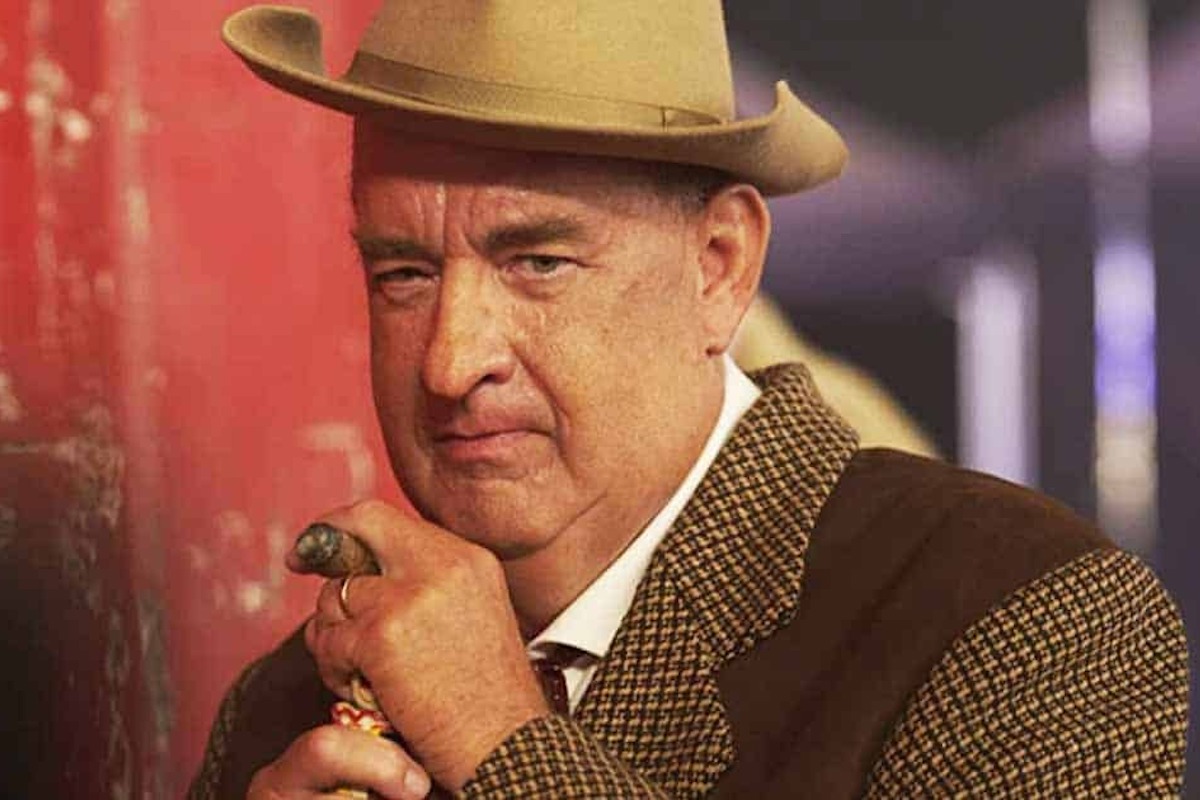This Year’s Oscars’ Most Disappointing Darling: Fat Suits
No, you don't get to use fat suits with impunity, Hollywood!

Proceed with caution if you get offended by offensive stuff! Hollywood’s hot new extremely old and tired trend? Humiliating the masses by putting thin actors in fat suits and laughing at them. And arguably even worse: putting thin actors in fat suits and claiming not to be doing it for laughs, but rather for poignancy and prestige.
Fat suits are all over the movies this year. Anthony Oliviera, a writer and film programmer, pointed out on Twitter that in the best makeup and hair category alone, he had spotted four fat suits in just three of the five nominated movies. He shared pictures of Austin Butler in a fat suit as middle-aged Elvis Presley for Elvis, Tom Hanks in his Elvis fat suit as The Colonel, Brendan Fraser in a very transformative fat suit for his role as Charlie in The Whale, and an unrecognizable Colin Farrell in aging makeup and fat suit for his role as the Penguin in The Batman. (Shoutout to Black Panther: Wakanda Forever and All Quiet on the Western Front for abstaining from that nonsense.)
Not every instance we’re seeing of fat suit casting this year is about comedy and making fun of big bodies. But many are, and historically, that’s what fat suits are about. Using them is fraught and should be done with much more caution, if at all. Remember Monica in “Friends” being shown as a “fat” teenager? The laugh track went wild whenever she was on screen. The whole joke was that she was bubbly and friendly and wanted to hang out (and also be viewed as a sexual being). But by being fat, she was not a person the other characters or audience could take seriously. Hilarious, I guess! If you haven’t seen Eddie Murphy as Professor Klump then you just weren’t part of ’90s culture. And don’t get me started on Gwenyth Paltrow in Shallow Hal.
J. Kevin Thompson, a retired professor and a researcher in psychology with a specialization in images and perceptions of fat people in the media, told the New York Times last year, “These roles were most often associated with ‘humor,’ which, of course, might not be so funny if one were the butt of the joke.”
Even when not played for straight-up comedy, fat suits perpetuate an othering idea of fat bodies, depicting fatness as unnatural and something that can be put on or taken off at will. And as we become more sophisticated as modern film audiences, we tend not to love it when people are cast as a member of a minority or marginalized group they’re not actually a part of. When white actress Scarlett Johansson was cast to play Major Motoko Kusanagi, a Japanese manga character in Ghost in the Shell? We did not love that. (Ditto for when Johansson was cast as a trans man in a project she thankfully subsequently backed out of.) When Angelina Jolie played an Afro-Chinese-Cuban journalist in A Mighty Heart, we all sighed a collective “WTF.”
Whitewashing has a long and screwed-up history in Hollywood, and only recently are audiences actually starting to reject it with their ticket-buying dollars. It’s also been common practice to cast straight or cis characters in queer or trans roles, and only very recently is rhetoric about why that might not be great reaching mainstream levels. Movie producers say they need big names to make money, and due to the industry’s long history of systematic discrimination, Hollywood’s overwhelming whiteness becomes self-perpetuating. That’s one of the excuses to use cis actors to play transgender characters in projects like Transparent, where Jeffrey Tambor played a trans woman, or Eddie Redmayne in The Danish Girl. It’s thought to be too great a risk to get financing for a project without a major star. And where are the trans stars? Overwhelmingly, they’re not big names because they’re not in big movies. It’s a catch-22 that we need to crash through.
The trend is clear whatever way you look at it, audiences are paying more and more attention to whether casting decisions pass the smell test. And this latest stanky craze in big blockbusters will hopefully peter out soon if it gets enough negative attention. Some artists who have participated in the trend are saying they’re sorry. After Sarah Paulson wore a fat suit to play Linda Tripp in “Impeachment: American Crime Story,” she spoke out about her regrets. Hollywood’s obsession with bodies and thinness, and thinning people’s bodies and embodying thinness needs an expiration date. It’s the worst, and we’re over it. It’s so disappointing to see the practice so overwhelmingly celebrated at this level of prestige.
(featured image: Warner Bros.)
Have a tip we should know? tips@themarysue.com